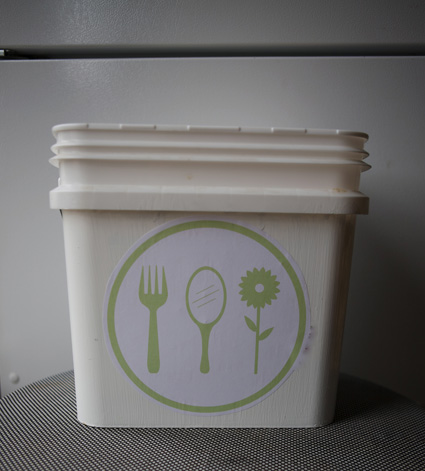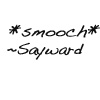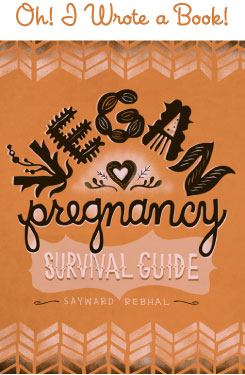
Just 3 months back I wrote the very first Itty Bitty Bonzai about the dangers of bleach, and included a simple recipe for a homemade substitute. Since then, I’ve been sort of obsessed with diy, non-toxic cleaning solutions. I’ve tinkered and tested and mixed (and messed) so much, I feel like a modern alchemist! But the work has paid off, and so finally I’m proud to share this, the first of my many concoctions: Sayward’s Homemade Laundry Soap
This stuff works great! It’s so much safer than synthetic chemical cleaners, and it’s also quite a bit cheaper than pre-made ‘eco-friendly’ detergents. It’s just five simple, all-natural ingredients.
White Vinegar – Vinegar is simply acetic acid: diluted, mild, and edible, but acid nonetheless. As such, it will dissolve dirt, mildew, mineral build-up, and soap scum. Vinegar is something of a wonder cleanser, and you’ll be seeing a lot more of it around here in the near future. Available everywhere.
Baking Soda – Baking soda is another amazing all-purpose cleaner, but it’s also an excellent deodorizer. As well, it softens water and helps to maintain neutral pH so that detergent can work more efficiently. It keeps your colored clothes from fading and also gets whites brighter. Available everywhere, but check the bulk bins at your local co-op.
Washing Soda – Baking soda’s badass cousin. Washing soda is much more alkaline and cuts oils like a pro, so it’s great in the laundry. It also helps to deodorize, but fighting grease and stains is the primary purpose. Look for it in the drug store or supermarket, in with the laundry and cleaning supplies.
Borax – Borax is awesome! It’s a natural stain remover and an excellent alternative to bleach, because it’s an anti-fungal/anti-mold and all-around disinfectant. Coupled with regular soap, it greatly increases cleaning power. Look for it in the drug store or supermarket, in with the laundry and cleaning supplies.
Castile Soap – ‘Castile’ isn’t a brand, but a type of soap: one that is made using only vegetable oils (as opposed to most soaps which render from animal fat). So not only is it vegan and cruelty-free, but it’s much easier on the environment as well. Castile soap is a superior gentle cleanser, and quickly biodegrades. I use Dr. Bronner’s lavender scented soap, and I absolutely adore it. Available at most ‘natural’ stores, and many Trader Joe’s.

Recipe:
1 1/4 cups white vinegar
1 cup baking soda
1 cup washing soda
1 cup borax
1/4 cup liquid castile soap
Mix in a large, non-metal bowl. I re-used (and decorated!) my previous soap tub, which worked great. Start with the vinegar and continuously stir as you add each powder. Try to stir out and break up any clumps. Finish with the liquid soap. It will seem wet, like a thick paste, but keep stirring and it will begin to flake and crumble into a moist ‘powdered detergent’. KEEP STIRRING! If you quit too early, you’ll find a very hard mass the next time you go to use it. So use them biceps and stir it to completion. You’ll end up with a sort of soft clumpy cake-y ‘loaf’, that will easily crumble off for use.
If you use plain non-scented castile soap, you may add a few drops of your favorite essential oil.
Store in a lidded container and use about 1/4 cup per load.

Enjoy, and happy green laundering!





Pingback: 12 Great Ways To Use Castile Soap - Eye Opening Info | Eye Opening Info
Pingback: 12 Great Ways to Use Castile Soap | Nifymag.com
Pingback: 12 Great Ways to Use Castile Soap
Pingback: Crazy for Castile Soap